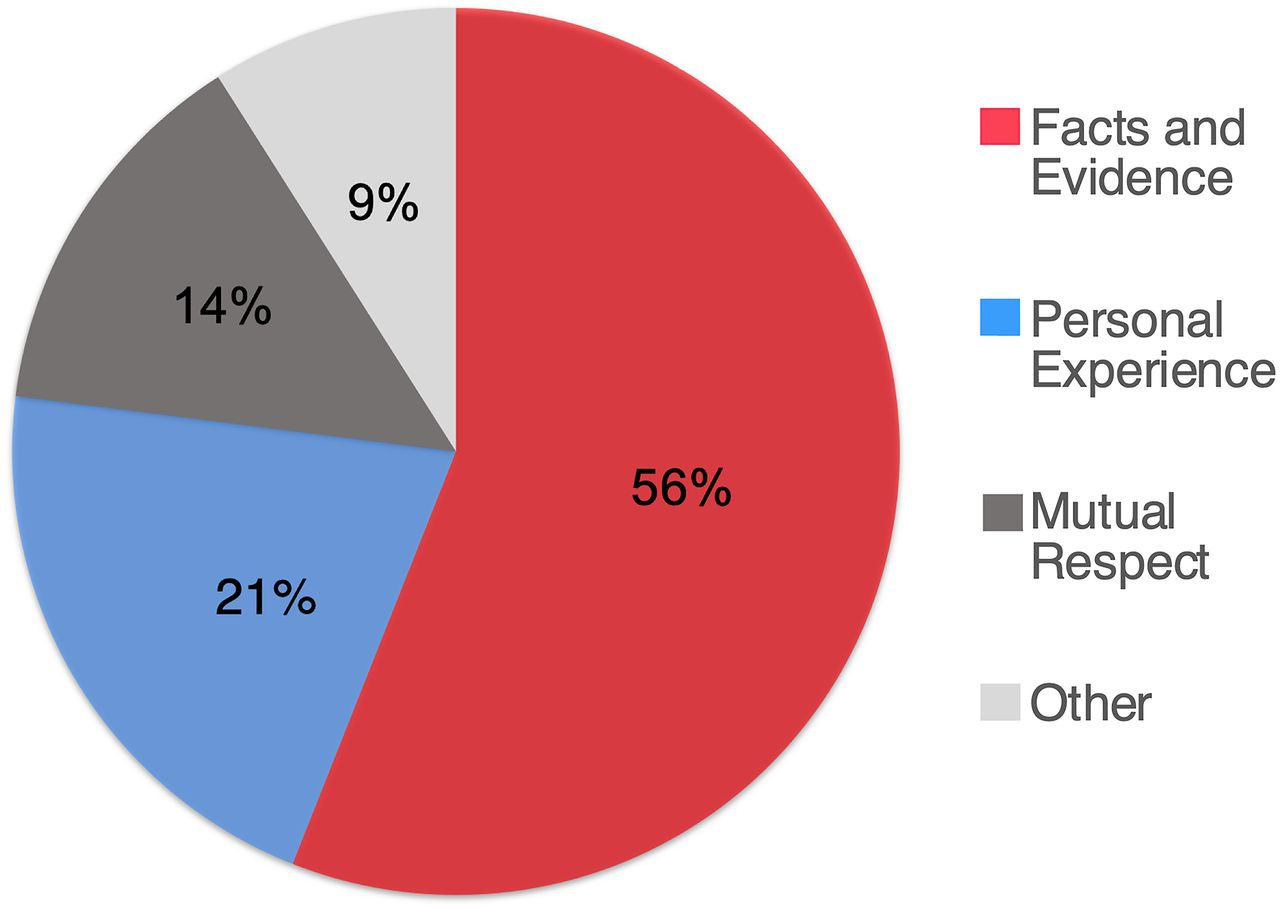🎭 Tell Stories to Influence People
Facts are great, but storytelling is your most powerful asset
We like to think of ourselves as rational animals swayed by good reasoning and solid evidence. But in reality, most people find emotional connection far more compelling than facts. And emotional connection doesn’t live in the world of science and data; it lives in storytelling.
As much as it pains me to say this as a scientist, your communication is likely to be more influential if you spend less time describing evidence and more time crafting a relatable narrative.

🗣 The evolution of storytelling
Every human culture on Earth uses storytelling. But why is it so ubiquitous?
In 2017, researchers visited an indigenous hunter-gatherer community in the Philippines called the Agta. They first asked members of the community to share some stories they frequently told each other.
All of the stories the Agta described were about social behavior, and they typically involved humanized characters cooperating in some form. Here’s one of their stories, as reported in the research paper:
“There is a dispute between the sun (male) and the moon (female) to illuminate the sky. After a fight, where the moon proves to be as strong as the sun, they agree in sharing the duty—one during the day and the other during the night.”
The Agta use this story to communicate a lesson of cooperation and equality between the sexes. Similarly, most hunter-gatherer stories around the world (~70%) are designed to teach social norms.
Storytelling among the Agta people correlated with actual cooperation. Agta camps with larger proportions of good storytellers performed more cooperatively in social experiments than camps with fewer storytellers. And when researchers asked Agta people about who they most wanted to live with in their communities, skilled storytellers were two times more popular than less skilled storytellers.
In fact, Agta people wanted to live with skilled storytellers even more than they wanted to live with people who were good at fishing, which is a highly valuable skill in Agta communities. The researchers also noticed that the best storytellers were having more offspring than everyone else.
So storytelling promotes cooperation, intuitively communicates social norms, and might even act as an aphrodisiac. Stories are an important part of society-building, and they may have helped to propel the evolution of human social function.
📣 Personal experiences are more convincing than facts
The universality of storytelling shows that it has served us well historically. But storytelling looks very different today. Instead of being limited to face-to-face communication, you probably see a personal story every time you launch a social media app. Stories spread farther and wider than they ever have before.
A paper published earlier this year provided some insight into how stories actually impact people’s beliefs. The chart below shows that people generally claim to respect facts and evidence in opposing viewpoints rather than personal experiences.

But people’s actual reactions show a very different pattern.
In one study from the paper, researchers randomly recruited people on public streets in North Carolina, and asked them to have a brief conversation with another person about US gun policy. The participants thought they were talking to other random people off the street, but they were actually talking to a scripted researcher who intentionally adopted the opposite viewpoint to the participant. The researcher would use either personal experiences or factual knowledge to support their views.
When the disguised researcher used personal experiences rather than facts, they were perceived as more respectable and more rational. Participants were also more willing to continue a conversation with them.
The researchers replicated this finding over and over again, varying the focus from topics like tax to topics like abortion, and varying the research methodology between surveys, lab tests, and even analyses of YouTube comments.
Across a total of 15 diverse studies, people consistently respected personal stories more than they respected facts. Personal stories might be the best weapon we have for combating political polarization.
The power of stories comes from their ability to lead a person’s mind down a desired path. When someone is taken by a story, their brain activity literally synchronizes with the storyteller’s brain activity as the plot plays out in their own mind and they anticipate what might come next. If they can’t follow the story, that brain synchronization fails.
There’s no arc to facts and stats, but stories feature relatable characters, challenges, and triumphs. Since this is exactly how we understand the events in our own lives, the story format feels compelling.
⭐️ Takeaway tips
Personal stories can be powerful but misleading: People think they respect facts and evidence more than they respect personal stories, but their behavior contradicts this. If you prefer that facts drive your beliefs, be on guard against the bias we all have to read too much into anecdotes.
Strengthen your own communication with storytelling: Nothing should stop you citing important facts, stats, and other evidence to support your viewpoint. But you can always complement this with personal stories and experiences so that you have the best of both worlds when communicating with others. Facts often provide the substance to a viewpoint, but stories sell the facts.
Practice telling better stories: Good storytelling takes a lot of practice. There are few shortcuts in life, so take every opportunity to journal about your experiences, analyze the techniques used by your favorite authors, or retell anecdotes to friends and family. The more you practice, the easier it will be to tell a compelling story when it most matters.
💡 A final quote
“Soft as some song divine, thy story flows.”
~ Homer, The Odyssey
❤️ If you enjoyed this, please share it with a few friends. If you’re new here, sign up below or visit erman.substack.com
📬 I love to hear from readers. Reach out any time with comments or questions.
👋 Until next time,
Erman Misirlisoy, PhD



